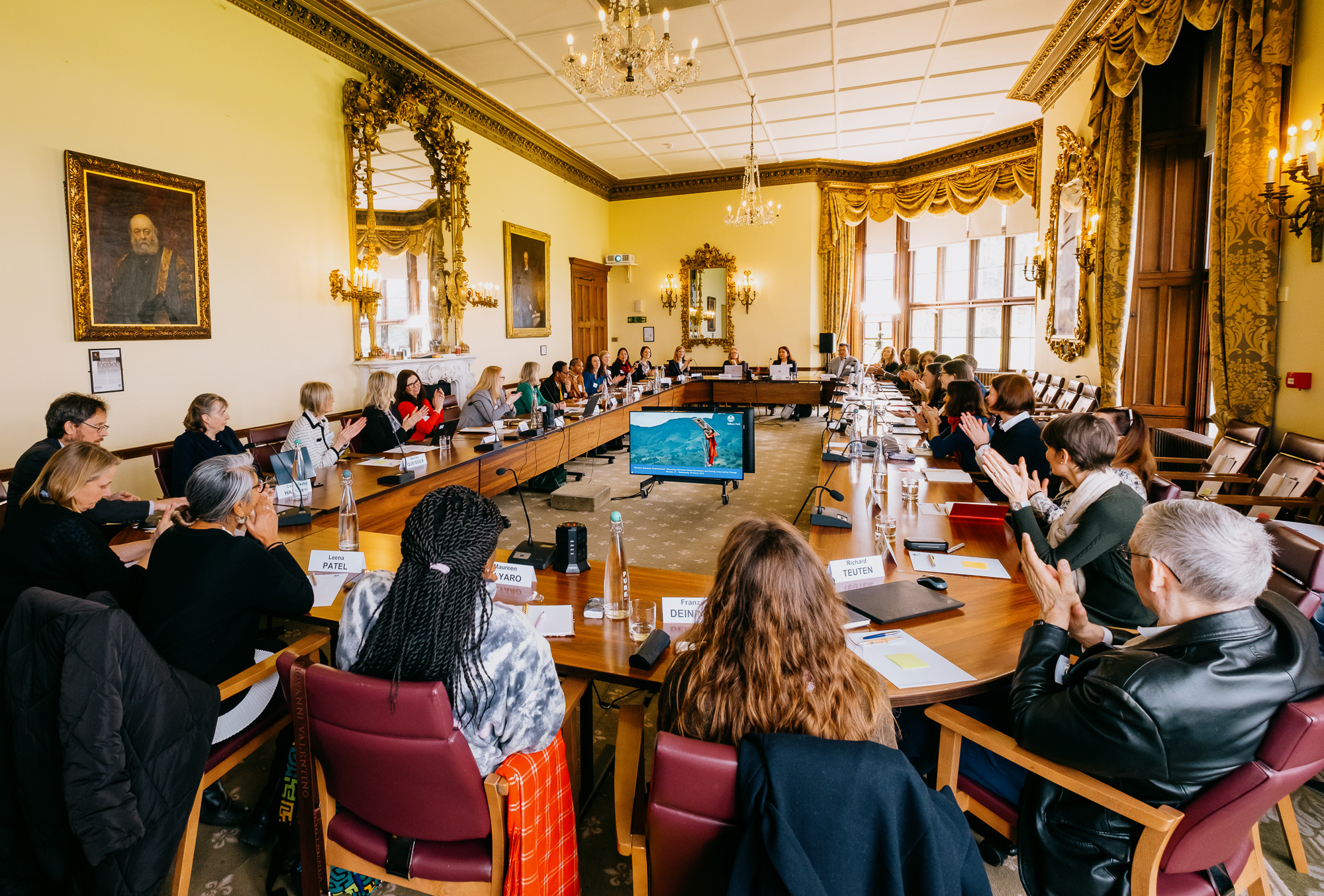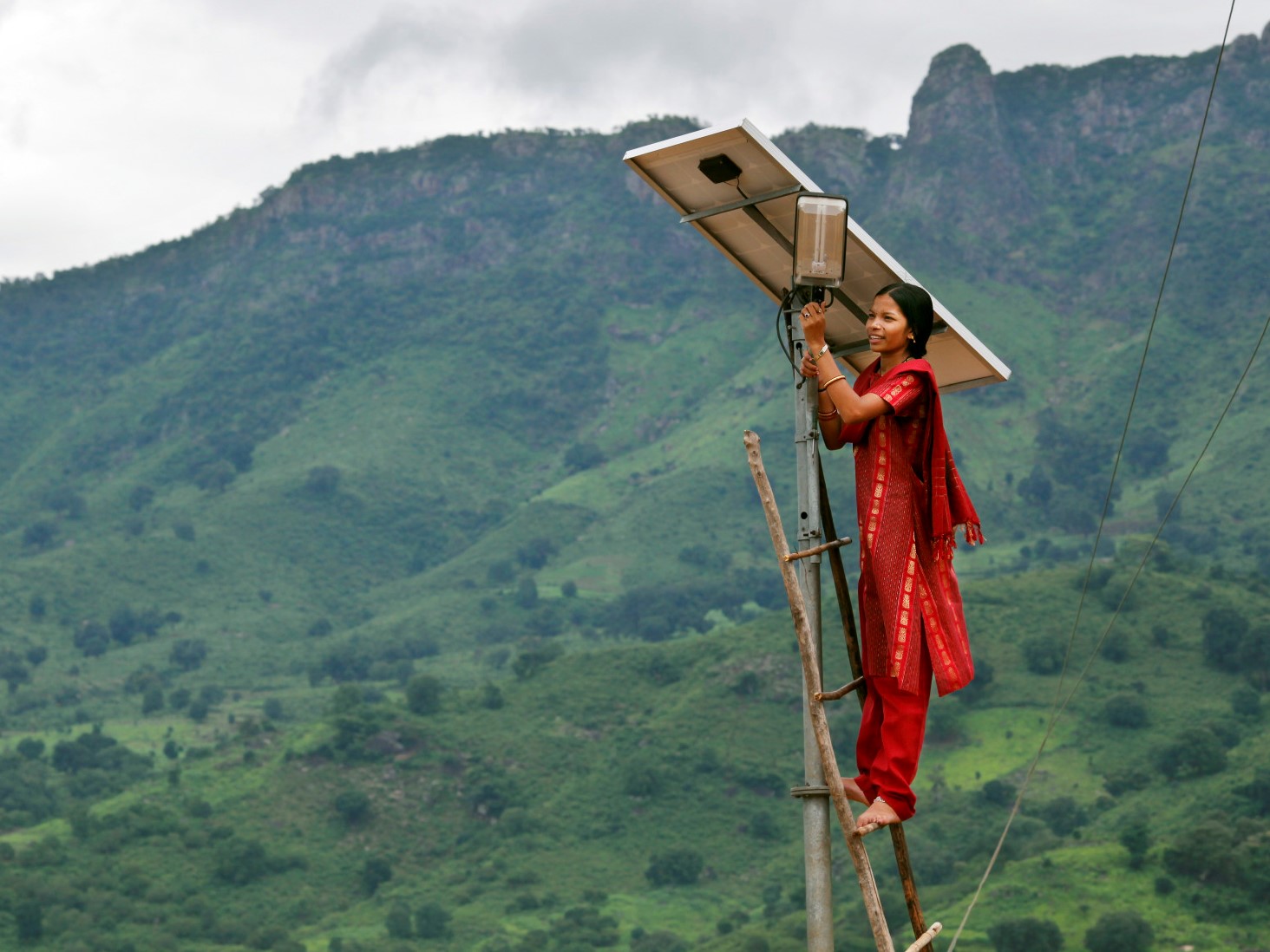In association with Foreign, Commonwealth and Development Office
Why we met
In the context of concerted efforts to roll back on women’s and girls’ rights and the disproportionate impact of COVID, conflict and the climate crisis, there is a need for a concerted, collective effort on, for and with women and girls. This conference aimed to stimulate renewed global momentum to drive long lasting improvement to women’s economic empowerment. It took stock of recent geopolitical changes, including the COVID-19 crises, establishing a coordinated and effective effort to enhance women’s economic empowerment. The norms underpinning gendered outcomes can be ‘sticky’ or resistant to change, particularly when reinforced through social institutions. Progress is often nonlinear, and subject to backlash and reversals. In 2022 the World Economic Forum found the global ‘Economic Participation and Opportunity’ gender gap to be 39.7% – which, at the current rate of progress, will take 151 years to close – representing multiple generations to parity. Concerted, coordinated international effort is needed therefore to allow women to fulfil their right to decent work.
The conference explored what works to support women at different life stages, and revisited the Seven Proven and Promising Drivers to Expand Women’s Economic Opportunities identified by the 2016 UN High Level Panel on Women’s Economic Empowerment:
- Tackling adverse norms and promoting positive role models;
- Ensuring legal protection and reforming discriminatory laws and regulations;
- Recognizing, reducing, and redistributing unpaid work and care;
- Building assets – digital, financial and property;
- Changing business culture and practice;
- Improving public sector practices in employment and procurement;
- Strengthening visibility, collective voice and representation;
This was an opportunity to check in on global progress on these drivers halfway between the Panel and the 2030 ambition for the SDGs.

“Women’s economic empowerment is central to realising women’s rights, reducing poverty, and achieving gender equality across the globe. When a woman’s earnings increase and become more stable, other areas of her life also improve. She can afford health care, pay her children’s school fees, and she is more likely to play a leadership role in her community.”
Alicia Herbert, UK Gender Envoy
The need for action
On 8th April the FCDO released their International Women and Girl’s Strategy to address the UK government’s three thematic priorities of educating girls, empowering women and girls and championing their health and rights, and ending gender-based violence. These areas face the most acute challenges, have the greatest potential gains, and are where we have greatest experience and expertise to act.
Today women earn less and have fewer workers’ rights. They have smaller businesses, fewer assets and lower productivity. They do three times more care and domestic work than men. Some groups of women are subject to even greater discrimination and economic disadvantage. These include women with disabilities, indigenous women, rural women, women raising children on their own, migrant or ethnic minorities and sexual and gender minorities.
There is a cost of living crisis being experienced globally, and common advice is tighter monetary policy and less broad based social assistance. Women are hit hardest by this, as they are the most vulnerable. Russia’s war in Ukraine has driven food prices up and threatened energy availability, and Covid-19 put a magnifying glass on women’s troubles. These crises, alongside urgent climate issues, distract from the issues of women’s economic empowerment, as there seems to always be something ‘more urgent’, and taking a higher priority in budget allocations. But this is the wrong way round to look at the issues – women’s economic empowerment is not something to address after these crises, it’s something we need to drive in order to address these crises: empowering women is good for growth; smooths out income inequality; women on financial institutions’ boards make the financial system more resilient; economies become more resilient to shocks as economies are more diversified when more women are in the labour force.
We now need to look closer at the care economy and how it can fit in the green economy. Currently only 28% of green jobs are held by women – we need to shift this.
Evidence shows women’s leadership and empowerment can drive sustainable, resilient and inclusive development.
- We need to value women’s equality and economic empowerment as a goal in itself – this needs leadership from the top, to make every single person take this seriously, or gender mainstreaming will not happen. We need to connect the dots between areas of development and the gender implications.
- According to recent evidence from the Missing Billion team, 18% of the world’s 4 billion women have disabilities – that means 700 million women.
- Prevalence of disability is higher in women than men by 18% to 14%.
We know that if people with disabilities are included in economic empowerment, the benefits can be felt on numerous levels, including contributing to between 3-7% of GDP if they are given economic opportunities[1]. Supporting women with disabilities into work challenges ableism. It lifts households out of poverty, and it helps the overall growth and resilience of economies.
[1] https://www.ilo.org/wcmsp5/groups/public/—ed_emp/—ifp_skills/documents/publication/wcms_119305.pdf
